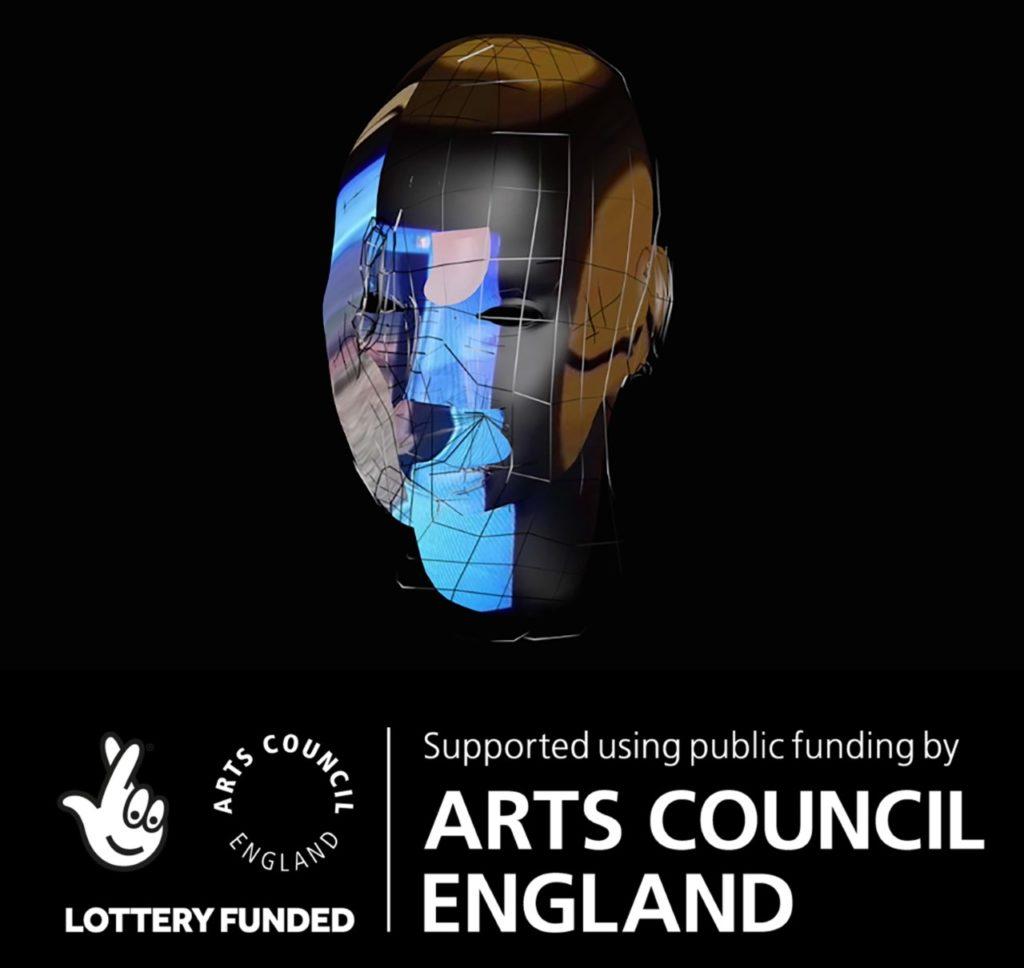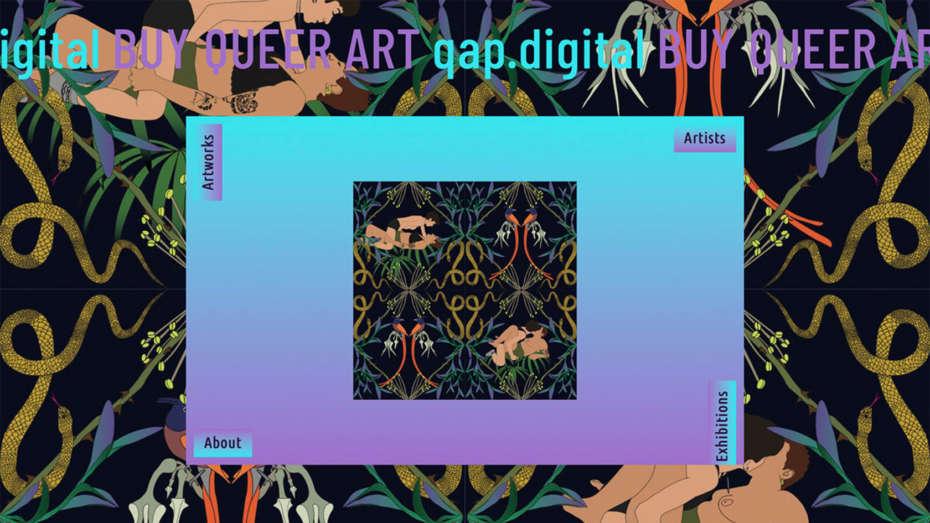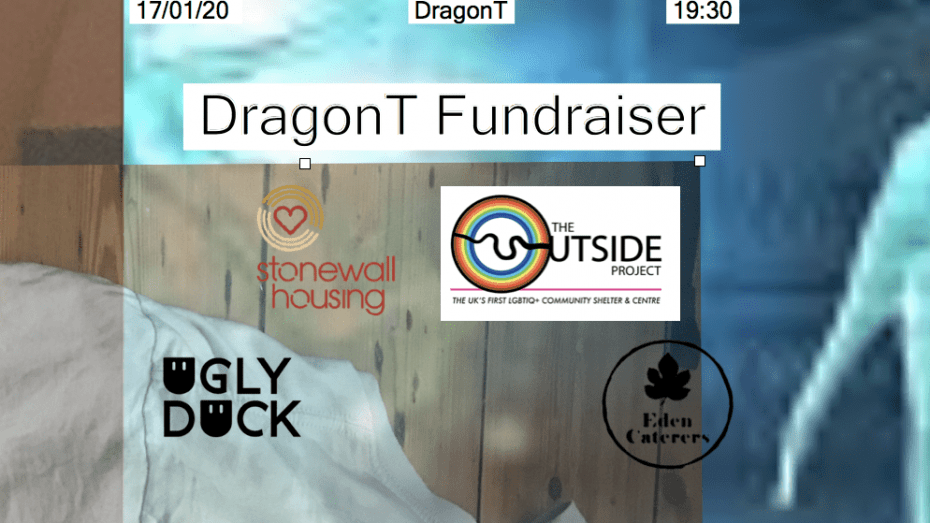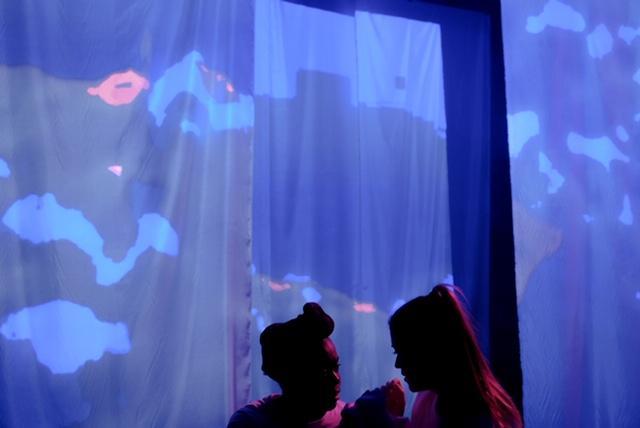
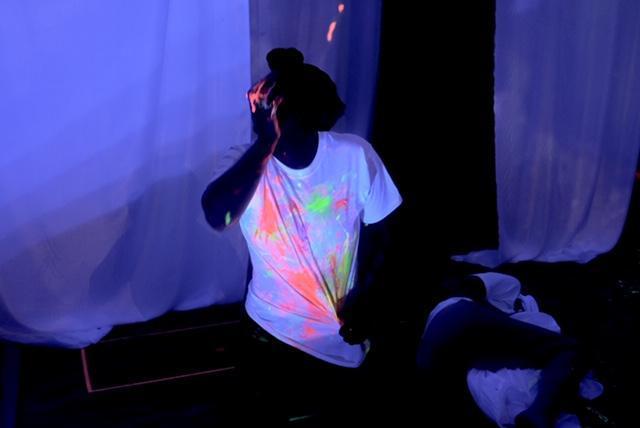
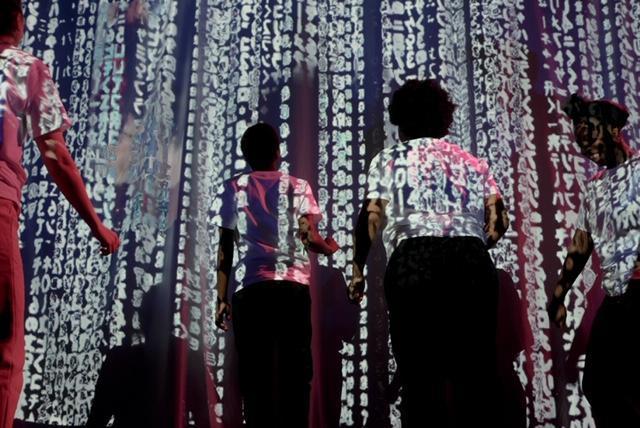
Girls at Night on the Internet: The Digital Error is a collaborative project challenging patriarchal perspectives of the female experience online… We asked Tess Monro to tell us more about it.
Tess Monro is the founder and director of Girls at Night on the Internet: The Digital Error, a collaborative project challenging patriarchal perspectives of the female experience online, Girls At Night On the Internet combines theatre, film and queer feminist performance art for an eclectic, electric theatrical experience. Ugy Duck is supporting the project by hosting their second R&D sessions in November and December 2019.
We asked few questions to Tess for you to find out more about this amazing adventure.
How did GANOTI get started, what inspired you to choose this particular subject?
GANOTI came from a jumper I received as a gift made by the incredible artist Grace Miceli (Art Baby Girl) which has the words ‘Girls At Night On The Internet’ emblazoned across it. One day, a family friend asked me what the words meant and it occurred to me that I had never truly considered their meaning. It got me thinking about what we do at night on the Internet and how we are exploring our sexuality online. Before I knew it, I had fallen into a rabbit hole of curiosity!
Our first R+D Symposium at Ugly Duck earlier this year illuminated the fact that female and gender non-conforming exploration of sexuality online is not really talked about socially and is still, to a degree, shrouded in shame. With this project we want to communicate experiences of sexuality and the Internet in a piece of interdisciplinary theatre that resonates and is cathartic for women (trans and cis gender) and gender non-conforming people. Girls At Night On The Internet: The Digital Error seeks to take our experiences out of the darkness and “solitude” of our bedrooms and into the light in celebration of this crucial dimension of the female, femme, queer and gender non-conforming experience.
I am very interested in the writing process you put in place, can you tell us more about that?
The Internet is a very exciting space to explore through live performance and theatre because of the myriad challenges it presents. As a theatre maker I think trying to physically realise a digital space and the feeling of being in that space is one of the most difficult and delicious aspects of this project.
The Internet as an experience is rarely a linear experience. We are often jumping from tab to tab and in terms of the Internet as a whole stories and experiences are happening constantly and simultaneously. Another key thing about the online experience is that it is very individual, each person’s experience of even the same video or online chat is their own experience and when you take gender identity, race, age, disability and the intersections of those demographics into consideration the Internet morphs into very specific places as per participant experience.
Knowing this, the idea of working in the traditional way, with one writer on a script for production, felt at odds with what we are trying to achieve because via that process the script created is ultimately one voice, one style, one filter. In order to capture the diversity and multiplicity of experiences online and the simultaneous, multi-dimensional nature of the Internet it is clear to me that we need to work with more than one writer, and more than one demographic of female and gender non-conforming participants. So we are working with four specific participant identity groups and four specific writers. It is a diverse group of individuals whose life experiences, professional expertise and artistic prowess serve the project’s aims to authentically explore and reflect female, femme, queer and gender non-conforming sexuality and the Internet both in form and in content.
Can you tell us a bit more about each collaborator on this project?
This project is as much about the subject matter as it is about the artists and collaborators involved in the process. As a theatre maker I am still starting out in my career and I am aware of the lack of opportunities for makers and artists at this level. It often feels like you are working in competition with your peers, elbowing for the same bottom-rung jobs in traditional theatre establishments and that can be a very isolating and toxic experience emotionally.
With this project I wanted to offer a multitude of different kinds of artists at a similar stage in their career an opportunity to collaborate with each other in a positive, embracing experience that also introduces artists to a broader network of creatives for future work and collaboration. As the project develops the pool of collaborators grows and grows and I am delighted to be introducing four new writers and a dramaturg into the mix in our latest R+D.
GIRLS AT NIGHT ON THE INTERNET: THE DIGITAL ERROR – THE COLLABORATORS
Molly Ackhurst – Molly is an Activist/Advocate for organisations and NGOs that specialise in women’s rights and social justice incl. RCSAS, RAHAB & The Advocacy Academy. Cofounder/Coordinator of The Silenced Museum & Hollaback! London, she regularly leads creative development projects/delivers workshops focusing on art psychotherapy. Our partnership with Molly is a core element to the identity to the project and the progress of gender-equality, diversity and social justice.
Hannah Jones – Hannah is a Dramaturg and co-founder of Knot Productions Ltd. with fellow director Tess Monro. In 2019 she completed her MFA in Theatre Directing at Birkbeck University, where she undertook a Residency at the Birmingham REP. In 2013 Hannah was Resident Director at the Finborough Theatre where she assisted on: The Precariat, White Carnation and Carthage. Hannah is a Script Reader for The Finborough Theatre, Birmingham REP and Jermyn Street Theatre. As a Dramaturg she has worked on Kiki (Birmingham REP), Geist and Smile (TalentLab, Luxembourg’s Writing Festival), The Amygdala (Bread & Roses) and Be Better in Bed (Finborough Theatre).
Reece Lyons – Reece Lyons is a Transgender Writer and Performance Poet based in London. She graduated in Theatre from The Brit School for Performing Arts and Technology in 2017, She has since become a Resident Artist at The Roundhouse and her work has gone viral and has been watched and shared by over 4 million people. Commissions include Mimbre and Shakespeare’s Birthplace Trust.
Michelle Tiwo – Michelle Tiwo is a poet, performer, songwriter, actor and 1/3 of SISTREN podcast and movement. A jack of many trades, with plenty more up their sleeve – making plantain chips disappear, being one. The Barbican young poet alumni’s work explores familial dynamics, youth culture, identity and religion, from the perspective of an emo with a sunshine aura.
Sharmila Chauhan – Playwright, screenwriter, and prose writer: Sharmila’s work is often a transgressive meditation on love, sex and the diasporic experience. Her plays include: Be Better in Bed (in development), The Husbands (Soho Theatre), Born Again/Purnajanam (Southwark) and 10 Women (Avignon Festival): all place women centre stage and explore power and femininity. She has had two short films (Girl Like You, Oysters, both Film London) and written two features: Her debut feature Mother Land – is currently being developed by Cinestan International and was long-listed for the Sundance Writers’ Lab.
Nicola Baldwin: Nicola is a playwright/scriptwriter. Commissions include Royal Court, Royal Exchange, Sheffield Crucible, Bath Theatres, BBC Radio, Resonance FM. Confetti won the George Devine award; 23.59, Poppy Q, Seven Scenes, Tony &Rose shortlisted for Susan Smith Blackburn, BBC Audio & Sony awards. Nicola’s current projects include; We The Young Strong about far-right radicalisation of young women, with NT Studio, The Lowry, Manchester Jewish Museum, ACE (R&D); Nosocomial a CSO award-winning verbatim drama collaboration with NHS Healthcare Scientists;Milo 11 feature screenplay. Nicola is UCL Urban Lab Creative Fellow 2019-2020 exploring performative activism around Waste and 2019 MGCfutures bursary recipient for new play Woman From Mars.
GANOTI also encompasses an unbelievably brilliant team of Associate Artists and collaborators who worked with us on our first round of development and who we hope to collaborate with in our third and final R+D next year.
Beatrix Blaise – Film Director, Photographer & Artist
Edythe Woolley – Performance Artist, Director, Writer & Founder of The Wardrobe Ensemble
Tiwalade Ibirogba Olulode – Actor, Playwright & Director
Gemima Hull – Playwright & Director
Sarah Carton – Performer, Singer, Songwriter, Writer & Sound Designer
Amelia Gann – Performer & Movement Director
Xana – Poet, Composer, Sound Designer, Live-Loop Musician & Performer
According to you, why did the internet quickly become such a prominent place for sexuality.
I think the relative anonymity the Internet provides as a space to think about and explore sexuality is a huge factor. In terms of porn specifically it provided vehicle that didn’t require men and women to be seen publicly going to X-rated films at the cinema or renting adult movies from the local video shop and consequently that online industry boomed.
Till recently the Internet was a place that was primarily curated to cater and accommodate male sexuality and the male gaze but recent studies show that there has been a spike in women and gender non-conforming people exploring sexuality online. As a result the landscape is changing.
These studies claim that women and gender-nonconforming people are re-appropriating the Internet, a space created and engineered for the male gaze, and using it to explore their sexuality on their own terms. This idea stood out to me as something to be explored and interrogated. In a space constructed to cater for the male gaze – is this even possible?
Do you think it generally made people and women (cis and trans) more free and empowered?
This is precisely the question we are investigating with our project – so stay tuned!
From the research we have done thus far it feels difficult to talk in general terms because experiences shared have felt so particular to the individuals. But I will say words like freedom and empowerment have come up less frequently than I expected.
What’s the next part of the project?
This second R+D is about honing in on female, femme, queer and gender non-conforming narratives and experiences of sexuality and the Internet. We are working with four specific participant identity groups and four specific writers in order to create a script for production that authentically reflects these experiences.
In our third and final stage of development we plan to invite our incredible Associate Artists back to collaborate with us once more to physically realise our script into a performance ready for production.
Thank you so much for taking the time to answer us, we can’t wait to see the result on stage !
The project described in this interview is supported using public funding by Arts Council England.
Girls at Night on the Internet: The Digital Error
Series of Workshops at Ugly Duck


